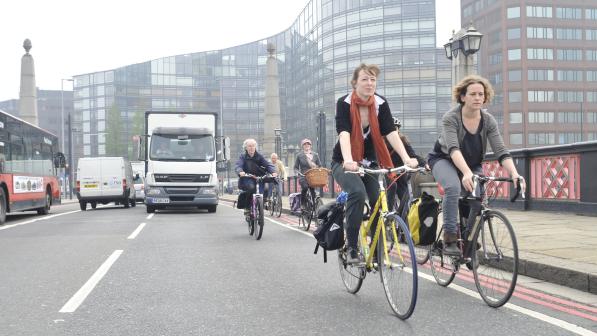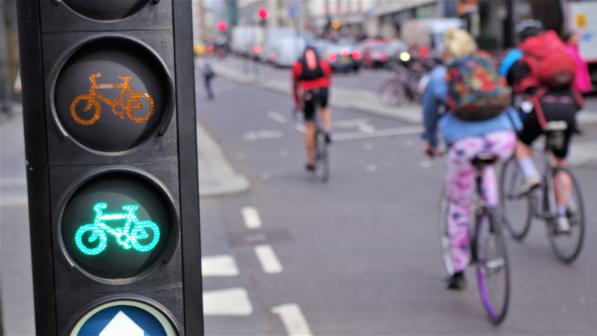Why is it important to activate Part 6 of the Traffic Management Act 2004?

Background
The Traffic Management Act 2004 (TMA) Part 6 made provisions for local authorities in England and Wales to be granted powers to enforce and issue penalty charges for various ‘moving traffic offences’.
These include various driving contraventions that cause problems for cyclists, e.g. driving in mandatory cycle lanes, disregarding one-way systems / box junction markings, and failing to give priority to oncoming traffic.
The Act also allows for local authorities to apply for powers to take on further enforcement themselves, rather than relying on the police.
The relevant TMA provisions, however, have not yet been activated for England because the Government hasn’t introduced the necessary secondary legislation.
Transport Select Committee’s recommendations
Back in 2011, a report by MPs on the Transport Select Committee (TSC) called for Part 6 of the TMA be brought into force by 2013.
As this did not happen, the TSC made the same recommendation again in 2016 on the basis of evidence it gathered during its inquiry into road traffic law enforcement:
Granting local authorities the power to enforce against moving traffic offences makes sense. It allows enforcement to take place even where roads police numbers are in decline and it provides valuable local accountability.
In their evidence to the TSC, the Local Government Association (LGA) also pointed out that:
“Parliament would not have created offences on the use of cycle lanes, banned turns and other dangerous manoeuvers had it not already been convinced that they would ease congestion and bring safety benefits.
“The police have largely ceased to enforce moving traffic offences in the wake of the TMA’s passing.”
Civil enforcement in London
Separate legislation has already given traffic authorities in London the power to enforce certain moving traffic contraventions, and this has had a positive effect.
In its evidence to the TSC, London Councils said that the ability: “… has a significant impact in both reducing casualties and improving traffic flow across the capital.
“Prior to authorities in London adopting the powers […] the enforcement of such contraventions was undertaken by the police, who had neither the time or the resource to deal with seemingly ‘minor’ traffic violations. Enforcement was therefore seldom and not effective in deterring non-compliance.”
However, the legislation that applies in London does not give boroughs the powers to enforce against vehicles driving in mandatory cycle lanes or against those that enter and stop on advanced stop lines (ASLs). This is a shortcoming, given London’s heavy investment in cycle infrastructure and commitment to increasing cycle use.
London Councils, along with the Greater London Authority (GLA), explained to the TSC that this should be remedied, a point the Committee also reflected in its report, recommending that: “… the Government consider the case for allowing additional moving traffic offences to be subject to civil enforcement in London.”
Need for action
As neither of the TSC’s recommendations has been implemented, traffic rules and laws that were meant to improve road safety are routinely disregarded for want of enforcement.
We therefore urge the Government to introduce the secondary legislation necessary to allow local authorities in England to take on responsibility for enforcement action against those who infringe mandatory cycle lanes and commit other ‘moving traffic offences’.


